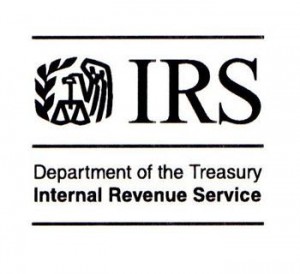 Carol V. Calhoun was interviewed for a piece on National Public Radio’s “Here and Now” program called, “State Tax Laws ‘A Mess,’ For Same Sex-Couples and Employers,” which aired today. You can listen to the segment at this link, a summary and transcript can be found here, and the chart referenced in the story is available at this link..
Carol V. Calhoun was interviewed for a piece on National Public Radio’s “Here and Now” program called, “State Tax Laws ‘A Mess,’ For Same Sex-Couples and Employers,” which aired today. You can listen to the segment at this link, a summary and transcript can be found here, and the chart referenced in the story is available at this link..
Category Archives: Employee Benefits
NPR Interview, “State Tax Laws ‘A Mess,’ For Same Sex-Couples and Employers.”
State Taxes and Married Same-Sex Couples
(Posted on March 7, 2014 by Carol V. Calhoun)
The article is set forth here exactly as it appeared in Baltimore OUTloud. An updated version that includes citations and links to the relevant authorities can be found at this link. Moreover, the discussion does not take into account the Supreme Court’s later decision in Obergefell v. Hodges, which struck down bans on same-sex marriage.
The Internal Revenue Service has now announced that same-sex couples married in a jurisdiction that permits such marriages will be treated as married for federal tax purposes, even if they live in a jurisdiction that does not recognize such marriages. But what about such couples’ recognition as married for purposes of state income taxes? The question is of concern not only to individuals, but to their employers which must determine proper state income tax withholding. In addition, employers which are in many instances expanding spousal coverage for same-sex partners under employee benefit plans will need to know the characterization of such coverage for purposes of state taxes. For example, an employer that provides spousal health coverage to a same-sex employee may be required to include the cost of such coverage in the employee’s state Form W-2 or equivalent, even though it would be excluded from the employee’s income for federal tax purposes.
Many would no doubt assume that whether a state will treat couples as married for tax purposes depends on whether it would recognize their marriages generally. However, that may not necessarily be the case. The issue arises because most states use a federal definition of income (either federal adjusted gross income or federal taxable income) for purposes of calculating state income taxes. Legally married same-sex couples will now file federal returns (and calculate federal adjusted gross income and federal taxable income) using either joint filing status or married filing separately status. Thus, the question arises whether married same-sex couples may (or are required to) use such status at the state level, even in states that do not otherwise recognize their marriages.
In the following states, the issue of treating same-sex couples as married for state income tax purposes does not arise, either because the state has no income tax or because the state taxes only interest and dividends and does not provide a separate rate structure for single and married taxpayers:
• Alaska • Florida • Nevada • New Hampshire • South Dakota • Tennessee • Texas • Wyoming
In each of the following states, same-sex married couples will now file state income taxes as married, because the state allows same-sex marriage:
• California • Connecticut • Delaware • District of Columbia • Hawaii • Illinois • Iowa • Maine • Maryland • Massachusetts • Minnesota • New Jersey • New Mexico • New York • Oregon • Rhode Island • Vermont
In Oregon, same-sex married couples will now file state income taxes as married, because although same-sex marriages cannot be performed in Oregon, Oregon recognizes same-sex marriages from other states.
In the following states, same-sex marriage is not recognized and there is no conformity between federal and state taxes, so same-sex married couples will have to file state taxes as if they were single:
• Alabama • Arkansas • Michigan • Mississippi • Pennsylvania
The following states do not recognize same-sex marriage, but conform to federal tax law:
• Arizona • Colorado • Georgia • Idaho • Indiana • Kansas • Kentucky • Louisiana • Missouri • Montana • Nebraska • North Carolina • North Dakota • Ohio • Oklahoma • South Carolina • Utah • Virginia • West Virginia • Wisconsin
The law in each of them is discussed in more detail below:
Arizona statute § 43-309 provides as follows: “If a husband and wife are required to file a return pursuant to section 43-301, they may file a joint return under the following conditions[.]”
Because there is no definition of “husband” and “wife” that cross-references the Internal Revenue Code, same-sex married couples must file Arizona state taxes as if they were single.
Colorado has a constitutional ban on same-sex marriage (although it recognizes civil unions). However, C.R.S. 39-22-103(11) states as follows: “Any term used in this article, except as otherwise expressly provided or clearly appearing from the context, shall have the same meaning as when used in a comparable context in the internal revenue code, as amended, in effect for the taxable period.”
Based on this language, the Colorado Department of Revenue has ruled that legally married same-sex Colorado couples must file their Colorado taxes as married.
Nothing in Georgia statutes specifically says who is permitted to file a joint return. However, given that there is a state constitutional ban on recognition of same-sex marriage in Georgia, the Georgia Department of Revenue has announced that same-sex married couples must file Georgia state taxes as if they were single.
Idaho statute § 63-3031 states as follows: “A husband and wife may make a single return jointly… Husbands and wives shall, if they elect to file a joint return for federal purposes, be required to file a joint return for state purposes.”
Because there is no cross-reference to the Internal Revenue Code for the definition of “husband” and “wife,” same-sex married couples must file Idaho state taxes as if they were single.
Although Indiana does not have a separate rate structure for married couples, marital status is nevertheless used in determining the number of exemptions, the taxability of employer-provided health care, and the like. The Indiana Department of Revenue site indicates that:
• If you file a single federal income tax return, you must file a single Indiana individual income tax return.
• If you file a joint federal income tax return, you must file a joint Indiana individual income tax return.
However, because there is no cross-reference in Indiana statutes to the Internal Revenue Code for the definition of “husband” and “wife,” the Indiana Department of Revenue takes the position that same-sex married couples must file Indiana state taxes as if they were single.
Kansas statute § 79-32,109 states as follows: “Any term used in this act shall have the same meaning as when used in a comparable context in the federal internal revenue code.” This would presumably apply for purposes of the definitions of “husband” and “wife” in § 79-32,115, which states as follows: “If both husband and wife are residents, and if their federal taxable income is determined on a joint federal return, their Kansas taxable income shall be reported and taxed on the basis of a joint Kansas income tax return.”
Nevertheless, because the Kansas Constitution prohibits the recognition of same-sex marriage, the Kansas Revenue Department has now ruled that same-sex married couples must file Kansas state taxes as if they were single.
Kentucky statutes § 141.020 states as follows: “The determination of marital status for the purpose of this section shall be made in the manner prescribed in Section 153 of the Internal Revenue Code[.]”
However, given that there is a state constitutional ban on recognition of same-sex marriage in Kentucky, Kentucky Tax Alert, Kentucky Department of Revenue, November 2013, ¶203-062 takes the position that same-sex couples must file Kentucky state taxes as if they were single.
The Kentucky Department of Revenue’s position will presumably have to be revisited unless the appeal of the decision striking down the ban on recognition of out-of-state same-sex marriages is successful.
Louisiana statutes § 10 states that, “A husband and wife may make a single return jointly.” It does not include a cross-reference to the Internal Revenue Code for the definition of “husband” or “wife,” nor does it reference federal filing status. Accordingly, the Louisiana Revenue Secretary has taken the position that same-sex married couples must file Louisiana state taxes as if they were single.
Missouri statutes § 143.091 state as follows: “Any term used in sections 143.011 to 143.996 shall have the same meaning as when used in a comparable context in the laws of the U.S. relating to federal income taxes, unless a different meaning is clearly required by the provisions of sections 143.011 to 143.996.”
This would presumably apply for purposes of the definitions of “husband” and “wife” in § 143.031, which states as follows: “A husband and wife who file a joint federal income tax return shall file a combined return. A husband and wife who do not file a joint federal income tax return shall not file a combined return.”
Notwithstanding the fact that there is a state constitutional ban on recognition of same-sex marriage in Missouri, Missouri Gov. Jay Nixon has issued an executive order permitting married same-sex couples to file joint Missouri state tax returns.
Montana statutes § 15-30-142 states as follows: “In accordance with instructions set forth by the department, each taxpayer who is married and living with husband or wife and is required to file a return may, at the taxpayer’s option, file a joint return with husband or wife even though one of the spouses has neither gross income nor deductions.”
As well, “If a joint return has been filed for a tax year, the spouses may not file separate returns after the time for filing the return of either has expired unless the department consents.”
Because there is no cross-reference to the Internal Revenue Code for the definition of “married,” “husband,” “wife,” or “spouses,” same-sex married couples must file Montana state taxes as if they were single.
Nothing in Nebraska law states explicitly who is required or permitted to file a joint return. The previous instructions to Form 1040N stated that, “Your Nebraska filing status must be the same as your Federal filing status.” However, based on a state constitutional ban on recognition of same-sex marriage in Nebraska, the Nebraska Department of Revenue has issued a ruling that individuals in a same-sex marriage must file Nebraska state taxes as if they were single.
North Carolina statute § 105-134.1 defines “married individual” as follows: “Married individual. – An individual who is married and is considered married as provided in section 7703 of the Code.”
However, given that there is a state constitutional ban on recognition of same-sex marriage in North Carolina, the North Carolina Department of Revenue has announced that same-sex married couples must file North Carolina state taxes as if they were single.
North Dakota statute § 57-38-30.3 states as follows: “The tax for individuals is equal to North Dakota taxable income multiplied by the rates in the applicable rate schedule in subdivisions a through d corresponding to an individual’s filing status used for federal income tax purposes.”
Nevertheless, given that there is a state constitutional ban on recognition of same-sex marriage in North Dakota, the state tax commissioner has now indicated that same-sex couples must file North Dakota state taxes as if they were single. A new Schedule ND-1S has been created to make the necessary calculations.
Ohio statute § 5747.01 states as follows: “Except as otherwise expressly provided or clearly appearing from the context, any term used in this chapter that is not otherwise defined in this section has the same meaning as when used in a comparable context in the laws of the United States relating to federal income taxes or if not used in a comparable context in those laws, has the same meaning as in section 5733.40 of the Revised Code.”
Nevertheless, given that there is a state constitutional ban on recognition of same-sex marriage in Ohio, the state department of taxation takes the position that same-sex married couples must file Ohio state taxes as if they were single.
Oklahoma statute § 68-2355 defines the individuals required to use a joint return as follows: “Married individuals filing jointly and surviving spouse to the extent and in the manner that a surviving spouse is permitted to file a joint return under the provisions of the Internal Revenue Code and heads of households as defined in the Internal Revenue Code not deducting federal income tax.”
Nevertheless, the state tax commission takes the position that individuals in same-sex marriages must file must file Oklahoma state taxes as if they were single.
The Oklahoma Tax Commission’s position will presumably have to be revisited unless the appeal of the decision striking down the ban on same-sex marriages is successful.
South Carolina statute § 12-6-40 states as follows: “For purposes of this title, ‘Internal Revenue Code’ is deemed to contain all changes necessary for the State to administer its provisions.”
While the language is somewhat opaque, it appears that this is intended to mean that terms in the South Carolina Code relating to taxes will have the same meaning as the same terms in the Internal Revenue Code. This would presumably include the terms “husband” and “wife” in § 12-6-5000, which states as follows: “If both a husband and wife are residents, and if their federal taxable income is determined on a joint federal return, their South Carolina taxable income must be reported and taxed on the basis of a joint South Carolina income tax return.”
However, given that there is a state constitutional ban on recognition of same-sex marriage in South Carolina, the instructions for the South Carolina tax return state that, “South Carolina does not recognize same sex marriage. If a same sex couple is able to file a federal return with a married status, they must file as single or head of household for South Carolina purposes.”
Although Utah does not have a separate rate structure for married couples, marital status is nevertheless used in determining the number of exemptions, the taxability of employer-provided health care, and the like. Initially, Utah Tax Commission Chairman Bruce Johnson declared that married same-sex couples could file Utah state income taxes as married, based on conformity with federal law. Then on October 9, 2013, the Utah Tax Commission later reversed that decision citing constitutional grounds. On January 15, 2014, the Utah Tax Commission reversed itself yet again, and will allow same-sex married couples to file as married.
Virginia statute § 58.1-301 states as follows: “Any term used in this chapter shall have the same meaning as when used in a comparable context in the laws of the United States relating to federal income taxes, unless a different meaning is clearly required.”
However, there is a state constitutional ban on recognition of same-sex marriage in Virginia. Accordingly, the Virginia Department of Taxation has issued Tax Bulletin 13-13 (November 8, 2013), providing that same-sex married couples must file Virginia state taxes as if they were single.
The Virginia Department of Taxation’s position will presumably have to be revisited unless the appeal of the decision striking down the ban on same-sex marriages is successful.
West Virginia statute § 11-24-3 states as follows: “Any term used in this article has the same meaning as when used in a comparable context in the laws of the United States relating to federal income taxes, unless a different meaning is clearly required by the context or by definition in this article.”
Nevertheless, the state department of taxation takes the position that same-sex married couples must file West Virginia state taxes as if they were single.
Wisconsin statute § 71.01(8) states as follows: “’Married person’” or ‘spouse’ means a person determined under section 7703 (a) of the internal revenue code to be married, unless the context requires otherwise.
Nevertheless, the state Department of Revenue takes the position that individuals in same-sex marriages must file Wisconsin state taxes must file as if they were single.
New article: State Taxes and Married Same-Sex Couples
(Posted on March 7, 2014 by Carol V. Calhoun)
 >Carol V. Calhoun‘s article, “State Taxes and Married Same-Sex Couples,” has now been published in Baltimore OUTloud. This article discusses the different approaches that each of the states has taken for state tax purposes, in the wake of the federal government’s decision to treat same-sex married couples are married for federal tax purposes.
>Carol V. Calhoun‘s article, “State Taxes and Married Same-Sex Couples,” has now been published in Baltimore OUTloud. This article discusses the different approaches that each of the states has taken for state tax purposes, in the wake of the federal government’s decision to treat same-sex married couples are married for federal tax purposes.
Cafeteria Plans Need to Move Fast to Take Advantage of Year-End IRS Guidance
(Posted on December 16, 2013 by Carol V. Calhoun)
 On June 26, 2013, the Supreme Court issued the Windsor decision, striking down a provision in the federal Defense of Marriage Act which had precluded recognition of same-sex marriages. In September, the Internal Revenue Service (“IRS”) announced that same-sex couples legally married in a state that recognized such marriages would now be treated as married for purposes of federal taxation, regardless of whether their marriages were recognized by their state of residence. The IRS announcement was made retroactive, meaning that such marriages will be recognized back to their inception.
On June 26, 2013, the Supreme Court issued the Windsor decision, striking down a provision in the federal Defense of Marriage Act which had precluded recognition of same-sex marriages. In September, the Internal Revenue Service (“IRS”) announced that same-sex couples legally married in a state that recognized such marriages would now be treated as married for purposes of federal taxation, regardless of whether their marriages were recognized by their state of residence. The IRS announcement was made retroactive, meaning that such marriages will be recognized back to their inception.
The IRS has issued Notice 2014-1, which provides guidance on the application of the new rules to cafeteria plans. However, in many instances employers will need to move quickly to take advantage of relief granted.
Judge in Detroit Bankruptcy Case Denies Any Special Protections for Pensions
(Posted on December 5, 2013 by Carol V. Calhoun)
 Judge Steven W. Rhodes of the U.S. Bankruptcy Court for the Eastern District of Michigan had now issued an opinion stating that the bankruptcy proceedings for the City of Detroit can go forward. The opinion provided no special protections for as yet unfunded pension benefits (although benefits already in the pension funds were protected). The judge rejected a contention that Michigan constitutional provisions prohibiting impairment of pensions would provide protection to promised but unfunded benefits.
Judge Steven W. Rhodes of the U.S. Bankruptcy Court for the Eastern District of Michigan had now issued an opinion stating that the bankruptcy proceedings for the City of Detroit can go forward. The opinion provided no special protections for as yet unfunded pension benefits (although benefits already in the pension funds were protected). The judge rejected a contention that Michigan constitutional provisions prohibiting impairment of pensions would provide protection to promised but unfunded benefits.
“The accrued financial benefits of each pension plan and retirement system of the state and its political subdivisions shall be a contractual obligation thereof which shall not be diminished or impaired thereby.” [Article IX, Section 24, Michigan Constitution]
Businesses Denied State Income Tax Deductions for Fringe Benefits for Same-Sex Spouses
(Posted on December 4, 2013 by Carol V. Calhoun)

As discussed in the chart, “State Taxes and Married Same-Sex Couples,” most states that do not recognize same-sex marriage are requiring same-sex married couples to file their tax returns as single (or head of household, if they qualify for that status). However, Virginia has now gone further, denying certain Virginia businesses state income tax deductions for fringe benefits they provide to same-sex spouses. As discussed below, the language used is muddy, and the holding is probably considerably less broad than it appears. However, businesses in Virginia need to be aware of its potential effect on them. And to the extent that other states take the same route, businesses in states other than Virginia would also be affected.
If You Like Your Insurance, You Can Keep Your Insurance… At Least For Another Year
(Posted on November 14, 2013 by Carol V. Calhoun)
 In the wake of negative publicity about individuals and small businesses losing their existing health insurance due to the Affordable Care Act, the Department of Health & Human Services, in consultation with the Treasury Department and the Department of Labor, has provided transitional relief. The transitional relief applies only if certain conditions are met, as follows:
In the wake of negative publicity about individuals and small businesses losing their existing health insurance due to the Affordable Care Act, the Department of Health & Human Services, in consultation with the Treasury Department and the Department of Labor, has provided transitional relief. The transitional relief applies only if certain conditions are met, as follows:
California Public Pension Ballot Initiative Would Eliminate Vested Right to Future Benefit Accruals
(Posted on October 16, 2013 by Carol V. Calhoun)
 A California statewide ballot initiative proposal, The Pension Reform Act of 2014 was filed on October 15, 2013. The proposal if passed would amend the California constitution to provide that employees have no vested rights in future pension and retiree health benefit accruals, but only to benefits accrued based on past employment. As such, it would cause the vesting of public retirement plans in California to be more comparable to the vesting of private retirement plans under the Employee Retirement Income Security Act of 1974 (“ERISA”). The proposal, if adopted, would be particularly significant inasmuch as California has historically been a leader in the recognition of the right of public employees to vesting in future benefit accruals.
A California statewide ballot initiative proposal, The Pension Reform Act of 2014 was filed on October 15, 2013. The proposal if passed would amend the California constitution to provide that employees have no vested rights in future pension and retiree health benefit accruals, but only to benefits accrued based on past employment. As such, it would cause the vesting of public retirement plans in California to be more comparable to the vesting of private retirement plans under the Employee Retirement Income Security Act of 1974 (“ERISA”). The proposal, if adopted, would be particularly significant inasmuch as California has historically been a leader in the recognition of the right of public employees to vesting in future benefit accruals.
New article: Supreme Court Same-Sex Marriage Decisions Create New Rules for Employee Benefit Plans
(Posted on October 4, 2013 by Carol V. Calhoun)
 Carol V. Calhoun‘s article, “Supreme Court Same-Sex Marriage Decisions Create New Rules for Employee Benefit Plans,” has now been published in Baltimore OUTloud. The article discusses the effect of the Supreme Court’s decisions regarding the Defense of Marriage Act and the subsequent guidance by the Internal Revenue Service and the Department of Labor on employee benefit plans.
Carol V. Calhoun‘s article, “Supreme Court Same-Sex Marriage Decisions Create New Rules for Employee Benefit Plans,” has now been published in Baltimore OUTloud. The article discusses the effect of the Supreme Court’s decisions regarding the Defense of Marriage Act and the subsequent guidance by the Internal Revenue Service and the Department of Labor on employee benefit plans.
Supreme Court Same-Sex Marriage Decisions Create New Rules for Employee Benefit Plans
(Posted on October 4, 2013 by Carol V. Calhoun)
After publication of this article, the Department of Labor revised regulation under the Family & Medical Leave Act to provide protections for legally married same-sex spouses, regardless of their state of domicile. Moreover, the discussion does not take into account the Supreme Court’s later decision in Obergefell v. Hodges, which struck down bans on same-sex marriage. An updated version of the information in this article, taking account of these and other recent developments, can be found at this link.
On June 26, 2013 in United States v. Windsor, the Supreme Court struck down section 3 of the Defense of Marriage Act (“DOMA”), which had barred federal recognition of same-sex marriages. On August 29, the Treasury Department and the Internal Revenue Service (“IRS”) announced that all same-sex marriages legal in the jurisdiction in which performed would be recognized for federal tax purposes, even if not recognized in a couple’s home state. On September 18, the Department of Labor (“DOL”) announced that the same rule would apply for purposes of the Employee Retirement Income Security Act of 1974 (“ERISA”).
What is the effect of the Supreme Court decision and the guidance from Treasury, IRS, and DOL on employee benefit plans? This article deals separately with the effect on plans subject to ERISA (plans other than governmental or church plans), plans maintained by governmental entities for their employees (governmental plans), and church plans.
ERISA Plans
The effect of the Supreme Court’s decisions and the agency guidance will depend on what benefits the employer is currently providing to same-sex spouses or domestic partners, and whether the employer wishes to avoid providing more benefits than are legally required. Each of the possible situations is discussed below.
1. Employer Currently Provides Spousal Benefits (But Not Domestic Partner Benefits), and Is Willing to Extend Benefits to Same-Sex Spouses
Going forward, the simplest choice for an employer is simply to treat same-sex spouses the same way it treats opposite-sex spouses. This has several immediate consequences:
- If the employer maintains a pension plan and an employee in a same-sex marriage retires, the normal form of benefits under the plan should be a qualified joint and survivor annuity for the life of the employee and the spouse. An employee should not be permitted to elect any other form of benefits without the consent of the spouse.
- If the employer maintains a pension plan and an employee in a same-sex marriage dies with a vested benefit under the plan, the spouse should receive a qualified preretirement survivor annuity unless both the employee and the spouse have elected out of such annuity.
- If the employer maintains a retirement plan other than a pension plan (e.g., a 401(k) plan), and an employee in a same-sex marriage dies with a vested benefit under the plan, the spouse should receive the entire death benefit under the plan.
- If a same-sex spouse is entitled to receive death benefits under an employer’s retirement plan and instead elects to have them directly rolled over to another plan, the spouse should be permitted to use any kind of plan to receive the rollover that would be permitted in the case of any other spouse, rather than being limited to the plans that would be available to a nonspousal beneficiary.
- If an employee with a same-sex spouse applies for a plan loan, the spouse must now consent to the loan before it can be provided.
- A retirement plan must comply with any qualified domestic relations order that transfers a portion of the employee’s benefits to a same-sex spouse or former spouse.
- An employee with a same-sex spouse should be allowed to take into account the spouse’s life expectancy in calculating the minimum distribution required under Internal Revenue Code section 401(a)(9). Similarly, minimum distributions for after-death distributions to a same-sex spouse should be calculated the same as for any other spouse.
- If a 401(k) plan provides for hardship distributions, or a 457(b) plan provides for distributions on account of an unforeseeable emergency, the hardship or unforeseeable emergency of a same-sex spouse can now be taken into account to the same extent as would apply in the case of any other spouse.
- If the employer maintains a health plan with spousal coverage, any new employee with a same-sex spouse should be permitted to elect spousal coverage under the plan. A same-sex spouse should be permitted to elect COBRA (health care continuation) coverage under such plan under the same conditions as would apply to an opposite-sex spouse.
- If the employer maintains a cafeteria plan, any new employee with a same-sex spouse should be treated as married for all purposes under the plan.
- An employee should be permitted to take family and medical leave to care for an ill same-sex spouse under the same conditions as for any other ill spouse.
If the employer’s plans include a definition of “spouse” that reflects the prior law excluding same-sex spouses, appropriate plan amendments should be made.
However, complications are introduced by the fact that there was no set beginning date for the application of the changes. The Treasury announcement stated that same-sex couples would be permitted to amend their tax returns for all years open under the statute of limitations. Guidance is expected, but not yet issued, on a variety of questions regarding the extent to which the changes should be applied retroactively in the case of employee benefit issues. The following are some examples of the questions that must be considered:
- If an employee with a same-sex spouse has already retired and begun receiving a form of pension benefits other than the qualified joint and survivor annuity, must the form of benefits be modified now? And if so, should the change be made retroactive to the first date on which benefits were paid, or should it merely apply to future payments? Should employees and their same-sex spouses be permitted to make a new election now to opt out of such form of benefits, if they so desire?
- If an employee with a same-sex spouse has already died after becoming vested in a retirement plan, is the spouse owed a benefit? And if the benefit has already been paid to someone other than the spouse, does the plan have the right to recoup the previously paid benefit?
- If a plan is making the minimum required distributions to an employee or same-sex spouse, can it discontinue all distributions until it has made up the excess amounts distributed in prior years (calculated based on treating the employee as married from the beginning)?
- A cafeteria plan (including a plan for the pretax payment of health insurance premiums) is permitted to allow for enrollment only once per year, unless certain events provided in the statute or regulations occur. An employer can permit enrollment upon marriage. But can it permit enrollment outside of the open enrollment period based on an employee’s same-sex marriage that may have occurred years ago?
2. Employer Currently Provides Domestic Partner Benefits
If an employer currently treats domestic partners as if they were married for benefits purposes to the extent permitted by prior law, the most immediate task is to determine which employees listed as domestic partners are in fact married, and to extend to them the new rights generated by the Supreme Court decision and the Treasury Department and Department of Labor guidance as described in the preceding section. For purposes of federal employee benefits law, an employee in a civil union or comprehensive domestic partnership is not treated as married (unless there is a legal marriage in addition to the civil union or domestic partnership), even if such employee has the same rights under state law as a married person. Thus, for example, a party to a civil union cannot be treated as a spouse for purpose of calculating minimum required distributions, and benefits cannot be paid to such a person pursuant to a domestic relations order unless such person qualifies as a “dependent” for purposes of federal tax law. Even if benefits are paid to a domestic partner under a domestic relations order, the benefits will be taxable to the employee (as contrasted with benefits payable to a spouse under a domestic relations order, which are taxable to the spouse).
In addition, if the same-sex spouse of an employee is covered under the employer’s health insurance or cafeteria plan, the value of the coverage was previously considered taxable to the employee in many instances. The employer should now cease to treat such coverage as taxable in calculating income tax withholding, Social Security and Medicare (“FICA”) taxes, and federal unemployment taxes. The IRS has now provided procedures for claiming a refund of previously paid taxes in such instances. And of course, COBRA rights will now apply to same-sex married couples in the same manner as they would apply to opposite-sex married couples.
3. Employer Wants to Avoid Providing Benefits to Same-Sex Spouses
What of an employer that wants to avoid providing benefits to same-sex spouses? What is the minimum recognition that must legally be given to a same-sex marriage?
The answer will depend on both federal and applicable state law. Federal law requires that a retirement plan recognize a same-sex marriage for each of the retirement plan purposes listed in the first section, other than the provisions for hardship or unforeseeable emergency distributions. It requires that family and medical leave be available to an employee whose domicile is a state that recognizes same-sex marriage. However, it does not require that a health or cafeteria plan provide spousal coverage.
To the extent that a plan is insured, state law may regulate the provisions of the insurance contracts. Thus, in some states, an insurance contract may not be permitted to discriminate between married same-sex couples and other married couples. Indeed, a state law may even require spousal coverage to be extended to individuals who would not be treated as married for purposes of federal law (e.g., those in a civil union or comprehensive domestic partnership). In the case of a self-insured health plan, it is unclear whether a state law that prohibits discrimination on the basis of sexual orientation would require an employer to treat same-sex spouses the same as other spouses. And even if it is legal to exclude same-sex spouses from benefits, such exclusions may be used to show discriminatory intent if an employer is charged with non-benefits-related violations of a state law prohibiting discrimination based on sexual orientation.
An employer that wishes to exclude same-sex spouses from benefits must also look at whether such exclusion, as a factual matter, causes discrimination against protected groups. For example, a qualified retirement plan is not permitted to discriminate in favor of highly compensated employees. And federal law prohibits discrimination based on race, sex, disability, age, and veteran status. If employees with same-sex spouses disproportionately fall into one of the protected classes, an employer may face legal problems in excluding them even if state statutes do not prohibit discrimination based on sexual orientation.
Finally, an employer that wishes to avoid granting more benefits than required by law to employees in same-sex marriages must carefully examine its plan documents. If a document says that benefits are to be provided to a “spouse,” and does not limit the definition of spouse, an employee may have a contractual right to spousal benefits even if the employer was not legally required to provide them.
Governmental Plans
Governmental plans are exempt from many of the qualification rules of the Internal Revenue Code, and from many other federal laws regarding employee benefits. However, unlike plans covered by ERISA (for which ERISA preempts many state laws), governmental plans are regulated by state constitutions and laws. In many states, constitutional or other legal provisions forbid the recognition of same-sex marriages. In others, constitutional or other legal provisions may require the recognition of civil unions or comprehensive domestic partnerships. Moreover, governmental plans themselves are often embodied in statutes, which neither the contributing employer nor the governing board of the plan may be in a position to modify. Thus, the first task is to determine the extent to which relevant constitutional and other law, and the provisions of the plan document, may require or preclude recognition of same-sex relationships.
That being said, a governmental retirement plan that does not otherwise recognize same-sex marriages will still need to allow a same-sex widow(er) of an employee to directly roll over any benefits to which he or she is entitled as a beneficiary to any plan to which any other widow(er) of an employee could roll over benefits, in order to avoid jeopardizing its qualified status. In addition, federal income tax withholding on retirement benefits must be made in accordance with the distributee’s marital status as determined under federal law, which means that same-sex marriages must be taken into account for withholding purposes. And the Family and Medical Leave Act requires that a same-sex spouse must be considered a spouse for purposes of family and medical leave if recognized as such under the laws of the jurisdiction of the employee’s domicile. Thus, for example, a Virginia governmental employer would need to recognize the same-sex marriage of any of its employees who was domiciled in Maryland or the District of Columbia for purposes of family and medical leave, even though Virginia law does not otherwise recognize same-sex marriages.
Conversely, an employer in a state that has only civil unions or domestic partnerships (but not same-sex marriage) will need to determine which of its employees in such relationships have been legally married under the laws of any other state. Even if the same benefits are being granted to employees in civil unions or domestic partnerships as to married employees, married same-sex employees will now have rollover rights under retirement plans, and treatment as married for purposes of calculating federal taxes, which are not available to couples who are not legally married.
Church Plans
Churches are likely to have the most flexibility in dealing with today’s decisions–but they also need to review their plans carefully to ensure that they do not accidentally grant or deny coverage.
The increased flexibility comes because of three factors. First, church plans are exempt from most provisions of ERISA. Second, state laws implementing same-sex marriage and/or prohibiting discrimination based on sexual orientation often provide exemptions for churches. Thus, for example, even a church based in Maryland could refuse to cover its employees’ same-sex spouses under a plan that covered all of its employees’ opposite-sex spouses. And third, unlike governmental plans, church plans are not subject to the equal protection provisions of the federal Constitution.
Nevertheless, a church retirement plan that does not otherwise recognize same-sex marriages will still need to allow a same-sex widow(er) of an employee to directly roll over any benefits to which he or she is entitled as a beneficiary to any plan to which any other widow(er) of an employee could roll over benefits, in order to avoid jeopardizing its qualified status. In addition, federal income tax withholding on retirement benefits must be made in accordance with the distributee’s marital status as determined under federal law, which means that same-sex marriages must be taken into account for withholding purposes.
Conversely, a church that elects to cover same-sex spouses would be in the same situation as a governmental employer that recognizes same-sex marriage. ERISA would not affect the plan, one way or the other, and now at least with respect to couples domiciled in states that recognize same-sex marriage, the employer need no longer be concerned about differing federal tax treatment of same-sex and opposite-sex spouses.
However, it is still critical to review plan language carefully. If, for example, a plan says only that it covers the “spouses” of employees, an employee with a same-sex spouse who was not covered by the plan might be entitled to sue on a contractual claim, even if nondiscrimination rules did not apply. Conversely, staff might be questioned by the congregation about misappropriation of funds if benefits went to individuals defined by applicable state law as not being spouses. Simple amendments to the plan to specify exactly who is covered could help to avoid such issues.
